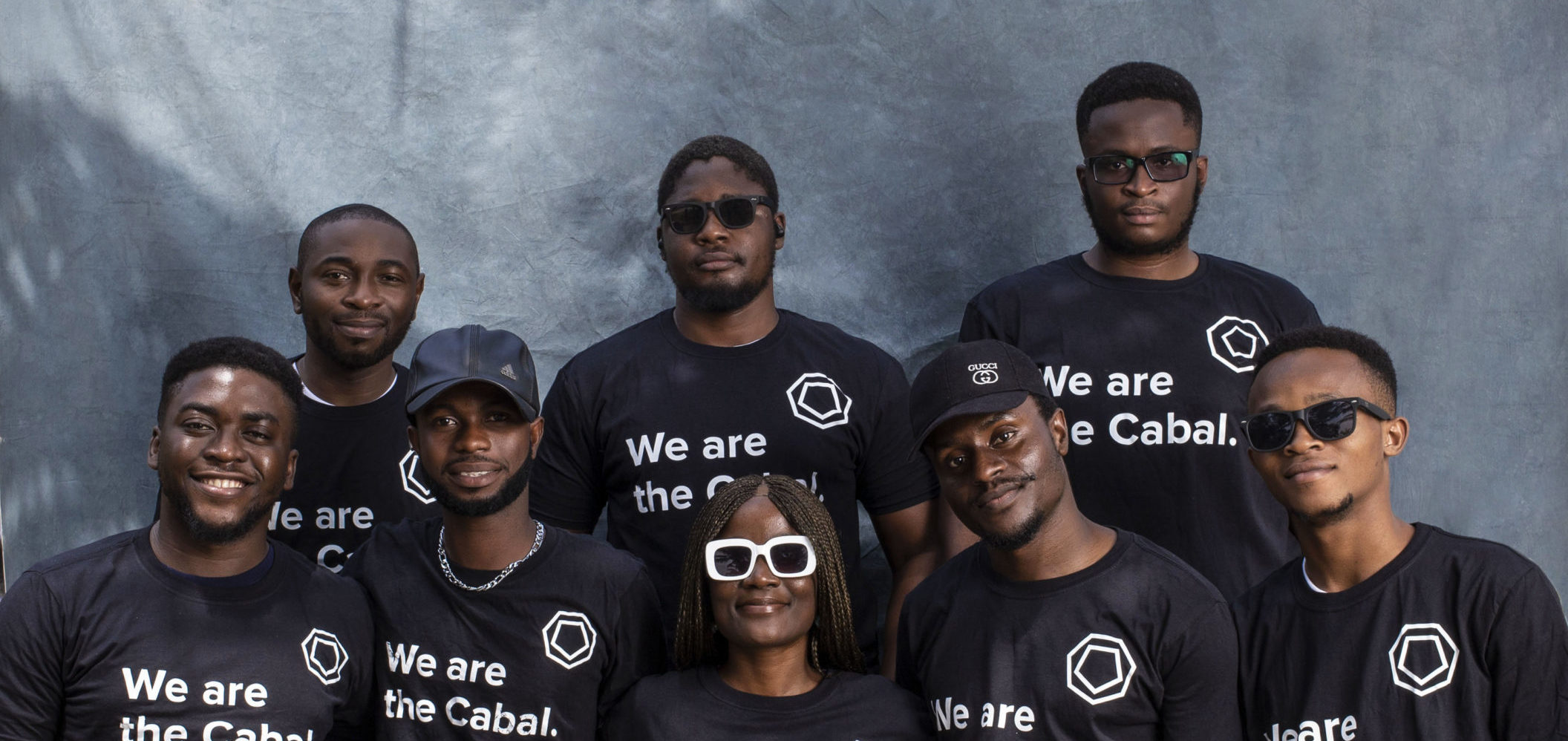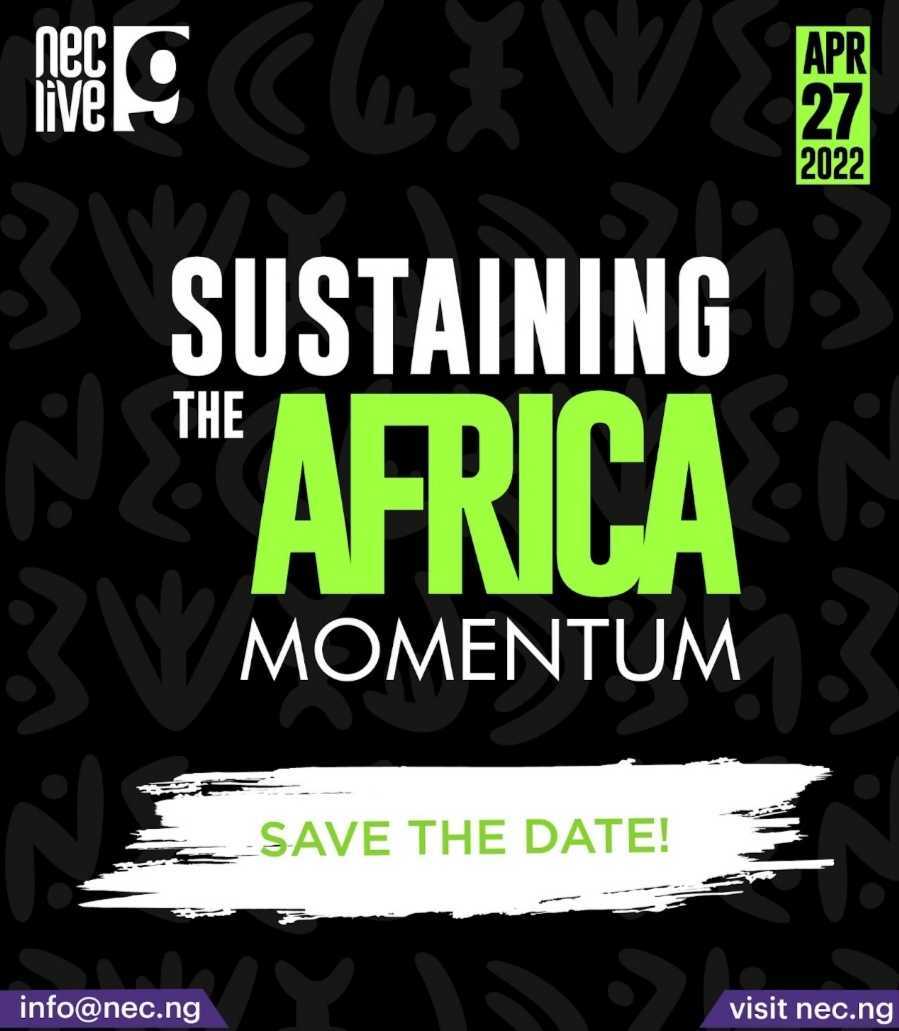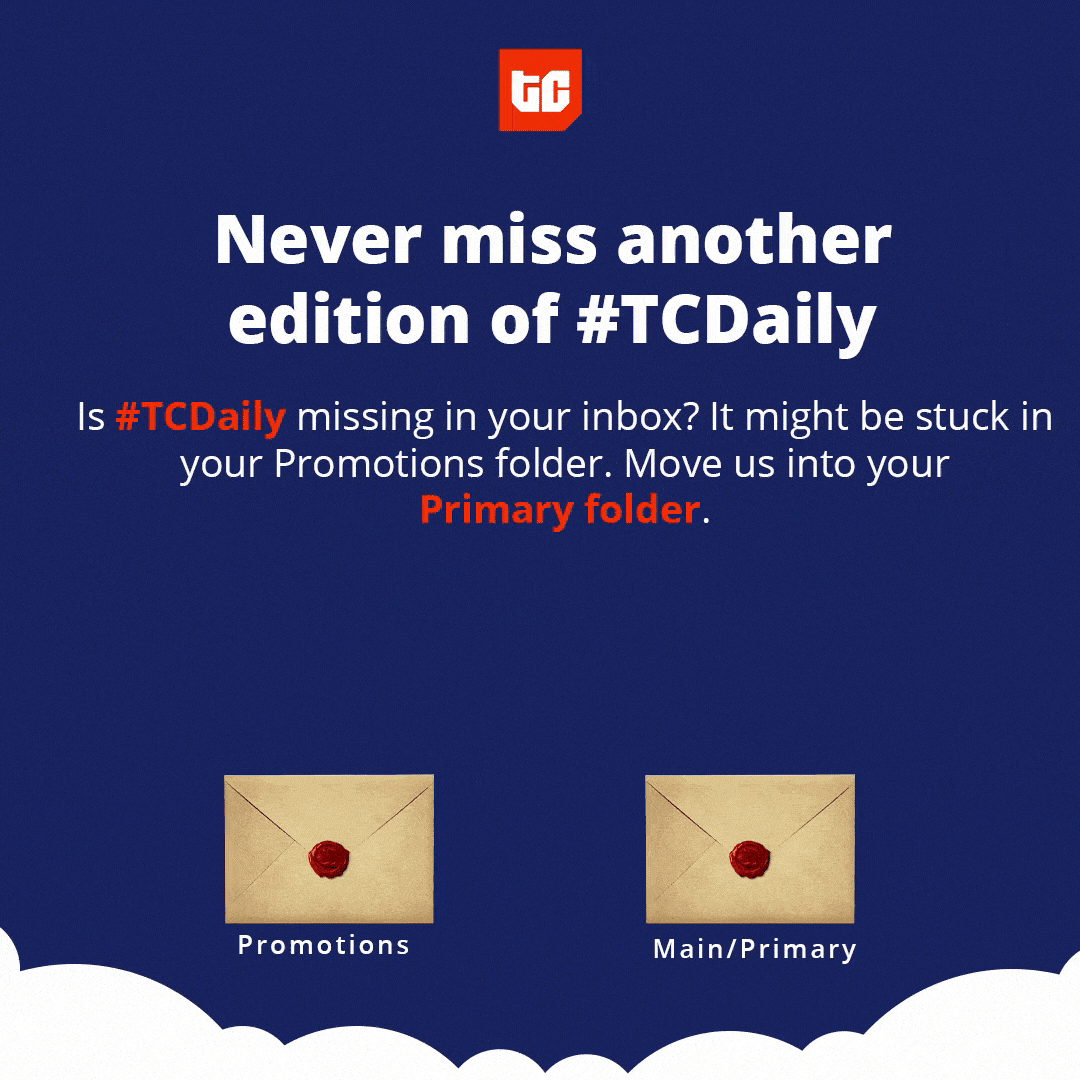
IN PARTNERSHIP WITH

Happy Valentine’s Day 💜
Good morning, TC Daily readers! I’m interrupting our regularly scheduled newsletter program to share a sweet message from TechCabal’s newsroom.
It has been our absolute pleasure to write TC Daily editions for you. We put a lot of effort into ensuring that every TC Daily edition looks and reads like a magnificent piece of technology literature. We know that TC Daily won’t be a widely-read newsletter without your constant love and support. Thank you for sharing your favourite editions with your ecosystem friends, co-workers, investors, founders, and network. We appreciate your retweets, tags, mentions, and laughing face emojis.
On a more personal note, I want to thank our current newsletter writer, Timi Odueso, for doing a phenomenal job with TC Daily. I also want to recognize the efforts of our former TC daily writers, Daniel Adeyemi and Muyiwa Olowogboyega, and editor, Edwin Madu. Each of them is responsible for shaping TC Daily’s voice, growing its subscribers, and publishing the most relevant technology news.
Have a wonderful day and don’t forget to show some love by sharing the newsletter.
With love,
Koromone “KK” Koroye,
Managing Editor, TechCabal.

Image source: Nengi from Cabal Creative
In today’s edition
- South Africa sues Huawei
- 11 African startups to watch in 2022
- TC Insights: Protect Africa’s data
- Job opportunities
EDITOR’S NOTE
In Friday’s edition, we listed Meta’s 3D avatar feature—on Facebook and Instagram—as one of the ways social media platforms are implementing NFTs.
What we omitted is that 3D avatars are different from NFTs. The avatar feature is not an NFT integration for Facebook and Instagram. As part of Meta’s foray into the metaverse, however, it’s possible that in the future, users will be able to buy NFT clothing for their 3D avatars.
SOUTH AFRICA SUES HUAWEI

Chinese multinational tech group Huawei is getting sued by South African authorities.
What for?!
For hiring more foreigners than South Africans.
One of the conditions set for Huawei’s set up in South Africa was that its employee quota would consist of 60% South Africans and 40% foreign nationals.
According to South Africa’s Department of Employment and Labour, however, the tech company presently has 90% of its workforce as foreign nationals, more than 2 times the agreed percentage.
Last Friday, the Department filed court papers in Johannesburg, seeking a court order for Huawei to comply with the employment rules and pay R1.5 million ($99,000) or 2% of its annual revenue in fines.
This is the first time the South African government has made a legal challenge against the Chinese tech giant. This move is part of the South African government’s recent increase in scrutiny on immigration, in a bid to placate voters ahead of the 2024 elections. In November, the government ended a 12–year programme to enable about 200,000 Zimbabweans to live and work in the country.
Big picture: Looks like Huawei may be the first casualty for South African companies. Home Affairs Minister Aaron Motsoaledi said the country would start looking into employment quotas for foreign nationals, in a bid to address SA’s unemployment rate. South Africa has a population of about 60 million, with about 3 million being migrants, according to its national statistics agency. Its unemployment rate is at 34.9%, the highest in the world so far, and majority are South African nationals.
Send and receive Naira, Cedis, Rand, Shilling, USD, Euros and other currencies directly to your mobile wallet, bank account, Barter wallet or through cash pickup with $end.
Visit send.flutterwave.com and do it now!
This is partner content.
11 AFRICAN STARTUPS TO WATCH IN 2022

It’s safe to say the Africa startup ecosystem came full circle last year with a record-breaking number of new innovative startups and huge investments to match. If innovation is a reflection of economic, social, and technological advancement, then we can say the ecosystem has advanced.
So, out of hundreds of excellent startups in Africa, we have curated 11 that we think you, our readers, should watch closely as we expect them to do some incredible stuff this year.
The crypto club
- First in this category is NFTfi, a decentralised and peer-to-peer South-African cryptocurrency loan platform founded in 2020. On this platform, users can list their NFT collateral to get loan offers from other users.
- Next is Lazerpay, a gateway that allows users pay for stuff with crypto. Lazerpay aims to do to cryptocurrency what Paystack and Flutterwave are doing to fiat in Africa.
- GetEquity was launched in 2021 to help everyday people invest as little as $10 in startups. Since launch, over $400,000 has been invested in the platform by 4,000 + users.
- Float launched in June 2021 as a cash management and credit provider fintech company for Africa’s fast-growth companies. Operational in Nigeria and Kenya, the startup recently closed a $17 million seed round.
- Egypt’s Telda is a digital bank that provides free accounts for its users and enables them to send and receive money. It also provides them with a card to use online, in stores, make withdrawals and pay bills. A month after its launch in May 2021, it closed a $5 million pre-seed round led by Sequoia.
Leading edtech
- Craydel, launched in Kenya in March 2021, provides a digital end-to-end higher education service. Its service spans from the point of students choosing schools, programmes, and courses to the application and admission stages.
- Nigeria’s Edukoya makes it easier for learners to take control of their learning and access high-quality learning material and expert help. Founded in May 2021, the startup recently raised $3.5 million pre-seed capital to bring effective education to secondary school students.
In Healthtech
- Bypa-ss is an Egyptian platform for Health Information Exchange (HIE), offering physicians a free cloud-based clinic management solution. The startup presently has over 17,000 users and 3,500 healthcare providers using its product.
- In Kenya, Afya Rekod provides users with 4 unique offerings: its core patient’s portal; electronic health record systems (EHRs) for hospitals; diagnostic centres for medical labs; and disease management for control and management of chronic diseases like Ebola and COVID-19. The platform recently closed a $2 million seed round to scale its efforts.
E-commerce and logistics
- Ghana’s Tendo is a social e-commerce platform that eases setup and operating costs for social commerce entrepreneurs by providing them with a curated catalogue of products, marketing tools, and other tools that facilitate trading for its users. The startup made it into Y Combinator 2022 Winter Batch, and this is an indicator of its potential to be watched closely.
- Founded in June 2021, Norebase is a one-stop-shop digital platform for African businesses to expand, file trademarks, and patent intellectual property (IP) across the continent. The startup handles everything it takes for a business to launch in a new African country.
At Busha, we want everyone everywhere in Nigeria to have access to crypto. That’s why you can buy as low as ₦250, set recurring buys, get the best rates, and soon 🤐 on Busha. Join 300,000+ Nigerians already using Busha.
This is partner content.
TC INSIGHTS: PROTECT AFRICA’S DATA
In 2018, more than 2.5 quintillion bytes of data were created daily across the globe. Powered by the rapid increase in mobile subscribers, many young Africans contribute to this huge figure. Many of them use digital products and are being asked to give access to their personal data, including financial, demographic, and geolocation data.
As a result, the regulations governing the protection of personal data are becoming increasingly important. Before 2016, only 16 of 55 nations had adopted specific data protection laws, the number rose to 33 by 2021.

While many countries across Africa have adopted rules governing the right to privacy, the adoption of laws governing data protection has gone more slowly. Across the continent, it ranges from high in West African countries, to low in Central and East Africa. In Southern Africa, several countries have adopted data protection laws that are not currently in force.
These laws differ substantially in a variety of ways. First, the scope of their coverage often diverges. Definitions of what constitutes “personal” data (and whether a specific subset of “sensitive” personal data exists); and the obligations of firms that hold or process these data are key issues.
Additionally, penalties for noncompliance vary; some countries require only fines for noncompliance, while others can restrict a firm’s legal ability to process personal data or may hold non-compliant firms criminally liable.
As more tech-enabled businesses grow across the continent, data protection laws can alter the way they use the personal data of African consumers, either for internal practices or commercial purposes. The compliance costs for firms operating with personal data in a variety of jurisdictions are likely to rise. In the same vein, tech startups that deal with sensitive data may face obstacles when expanding to other markets.
The challenges of the complicated patchwork of data protection laws in Africa’s many markets may be alleviated by creating and adopting a unified data protection and privacy policy, similar to the approach taken by the EU. Growth is important but it should not be sacrificed at the altar of personal data.
You can download all our reports here and watch videos from our events. Send your custom research requests here.
Fincra is a payment infrastructure that provides fintechs, online platforms, and global businesses with reliable payment solutions for quick collections and payouts in different currencies. You can gain access to Fincra’s payments platform or integrate their APIs for seamless payments processing.
This is partner content.
EVENT: NECLIVE

This year’s edition of the Nigerian Entertainment Conference (NECLive), one of Africa’s biggest and longest-running gatherings of entertainment and creative industry professionals, will return in-person for the first time in three years, as a hybrid event.
NECLive9 will blend an in-person event featuring a select number of guests, with online participants and a live global broadcast across cable TV, radio and online.
Themed “Sustaining The Africa Momentum”, NECLive9 will explore how African creatives and entertainers can use digital media and technology tools to build sustainable economic power for themselves, the industry, and their nations.
The conference—which will be held on Wednesday, April 27, 2022, in Lagos, Nigeria—will feature live performances by entertainers from across Africa, and will also include product unveilings, brand announcements and industry tributes.
NECLive9 will be held in-person in Lagos and simultaneously broadcast live across the world on DStv and on the NECLive website.
JOB OPPORTUNITIES

Every week, we share job opportunities in the African tech ecosystem.
- TechCabal – Junior Newsletter Writer, Senior Editor – Africa (Remote)
- Kuda Bank – DevOps Engineer, Android Developer – Lagos, Nigeria
- Fuzu – Community Engagement Manager, Business Development Associate – Kampala, Uganda
- Mono – Senior UI Designer – Lagos, Nigeria
- Nithio – Business Development Associate – Nigeria/Kenya
There are more opportunities here. If you’d like to share a job opening or an opportunity, please fill this form.
What else we’re reading
- Nigerian stock exchange wants to attract tech IPOs with new listing rules.
- Zach George: From Wall Street to investing in African startups.
- Elon Musk’s Neuralink allegedly subjected monkeys to “extreme suffering”.
- South Africa has decided to keep its lockdown restrictions until the year ends



























